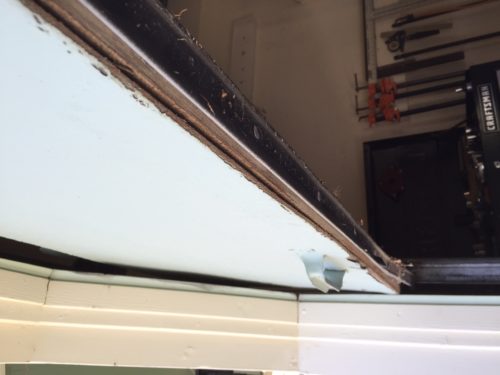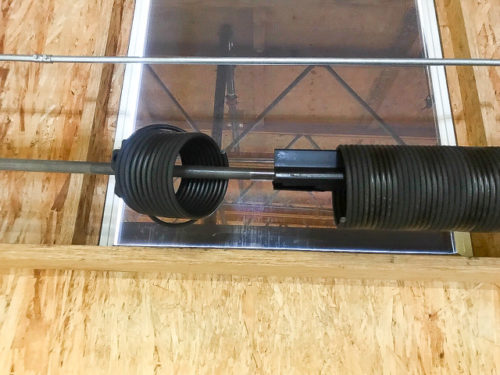Noisy Garage Door Solutions
A tranquil home can quickly be disrupted by the grinding and clattering of a noisy garage door. The cause of these disturbances can range from worn-out springs to misaligned tracks. Fortunately, identifying the root of the noise and implementing the right noisy garage door solutions can restore tranquility and avoid costly repairs that can result from continued neglect.
 Causes Of Garage Door Noise
Causes Of Garage Door Noise
Before jumping into solutions, it’s essential to understand the things that cause garage door noise.
- Age and Wear: Just like any machinery, garage doors age. Over time, parts can wear out, leading to obvious creaks and groans.
- Lack of Lubrication: Friction is a primary cause of noise. If moving parts aren’t adequately lubricated, they can create a lot of racket.
- Loose Hardware: Bolts, nuts, and other fittings can become loose over time, leading to damaging vibrations and loud noises.
- Misaligned Parts: When tracks or rollers are out of alignment, the door won’t move smoothly, causing clattering and other noises.
Once you’ve pinpointed the cause, you’re well on your way to finding the right solution.
Noisy Garage Door Springs
 Springs are fundamental components of garage doors, responsible for bearing a lot of weight. Over time, these springs can become noisy for various reasons:
Springs are fundamental components of garage doors, responsible for bearing a lot of weight. Over time, these springs can become noisy for various reasons:
- Wear and Tear: As springs age, they can become stretched or corroded, leading to increased noise.
- Lack of Lubrication: A quick lubrication can often alleviate the noise coming from your springs.
- Mismatched Springs: Sometimes, homeowners replace only one spring, leading to imbalance and increased noise. Always replace springs in pairs.
If your springs are particularly old or look worn out, it might be time to replace them to ensure both safety and silence. But please don’t attempt it yourself. The power in these springs can, frankly, be lethal and can easily cause a serious injury.
Garage Door Grinding Noise
A grinding noise is particularly unsettling, often indicative of significant friction somewhere in the system. Common causes include:
- Worn-out Rollers: Rollers can wear down over time, and when they do, they can make a grinding noise against the tracks.
- Misaligned Tracks: If the door’s tracks are even slightly out of alignment, they can cause the door to make a grinding noise as it moves.
Addressing the grinding noise promptly is essential as it can lead to more severe damage or a completely malfunctioning door if neglected.
Garage Door Vibration Noise
Vibration noises often result from the garage door’s movement, but when these sounds become too pronounced, they may indicate:
- Loose Parts: A common culprit behind vibration noise is loose nuts, bolts, or brackets. Tightening them can significantly reduce or eliminate the noise.
- Unbalanced Doors: If the door isn’t balanced correctly, it can lead to increased vibration. Checking the balance and making necessary adjustments is essential.
Garage Door Noise Dampening
For homeowners looking to reduce garage door noise, several dampening solutions are available:
- Rubber Insulators: These can be installed between the door and the opener bracket to reduce vibration.
- Nylon Rollers: Unlike steel rollers, nylon ones operate more quietly and can be an excellent solution for homeowners looking to reduce noise.
- Regular Maintenance: Simply maintaining your garage door, including regular lubrication and checking for wear and tear, can go a long way in noise reduction.
Call Ex-cello Today
A noisy garage door can lead to unnecessary repairs later. But with early action you can nip issues in the bud. Whether it’s the grinding noise of misaligned tracks or the vibrations of loose hardware, Ex-cello can take care of it for you right now.


